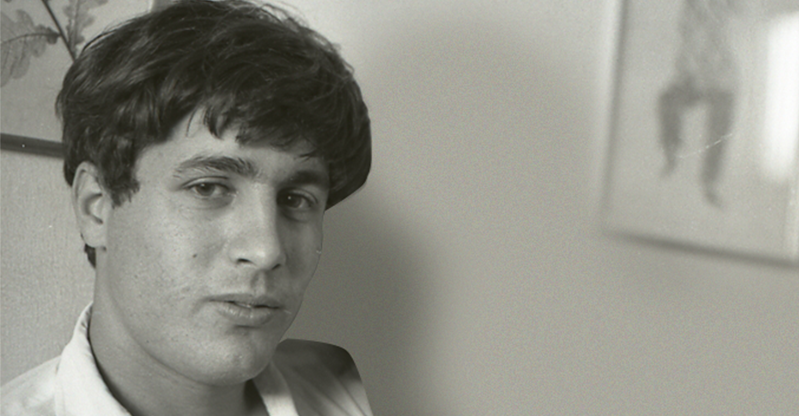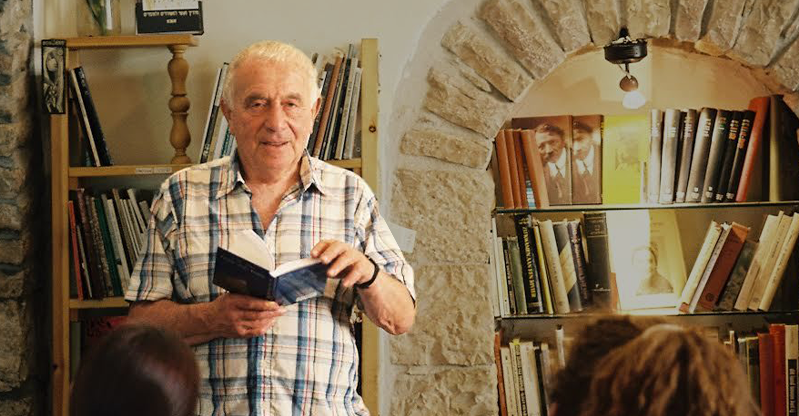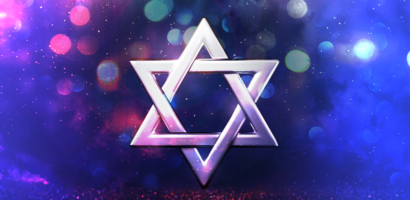Israel is a country with a rich and vibrant literary tradition, home to a diverse range of poets, novelists, and playwrights who have made significant contributions to the nation’s cultural consciousness. From the fundamental poetry of Nathan Zach to the lyrical style of Rachel Bluwstein, Israeli literary figures have captured the spirit of the Land of Israel and its people in their work. In this blog, we will explore the lives and legacies of some of the most notable Israeli literary figures and invite you to join us on a journey of discovery through the world of Israeli literature.

Nathan Zach (1930-2020)
Nathan Zach was a renowned Israeli poet known for capturing the spirit of Israel in his work. The son of a Catholic mother and a German Jewish father, Zach and his family were forced to flee Nazi Germany and eventually settled in Haifa, Israel. At 18 years old, Zach served in the 1948 Arab-Israeli War before publishing his first poetry collection in 1955. Throughout his career, he published eight poetry collections, numerous volumes of prose, and children’s stories.
One of Zach’s poems, translated by Peter Cole, exemplifies his talent for language-specific wordplay:
Poetry chooses choice things, carefully selecting
Select words, arranging,
Fabulously, things arranged. To put it differently
Is hard, if not out of the question.
Poetry’s like a clay plate. It’s broken easily
Under the weight of all those poems. In the hands
Of the poet, it sings. In those of others, not only
Doesn’t it sing, it’s out of the question.

Yehonatan Geffen (1947 – )
Yehonatan Geffen is another notable figure in Israeli literature. Coming from a prominent family, including the nephew of legendary general Moshe Dayan, Geffen is known for his poetry, journalism, and children’s songs. In addition to his playful side, Geffen is known for providing food for thought in political debates through his literature. One of his most popular children’s songs, “I Love” is a playful ode to all the things that bring joy to life:
I love chocolate and cheesecakes
And popsicles and candies and strawberries
I love birthdays and bags with goodies
And the sun and the moon and a few stars as well.
I love the winter and the summer and the autumn
And the spring and what there is now
I love Galit especially with braids
And the girl with the freckles and the girl with the dimples.
I love my mom and dad too
And Shula the kindergartner and my aunt Miriam
I love my grandpa and grandma, I love my sister
But what I love most is me
I love the winter…

Rachel Bluwstein (1890 – 1931)
Rachel Bluwstein, also known as Rachel the Poetess, is considered a founding mother of modern Hebrew poetry by women. Born in Imperial Russia, Bluwstein began writing poetry at the age of 15 and later moved to Palestine, under Ottoman control, at the age of 19. While working at the Davat newspaper, she was encouraged by Zalman Robashov, the future third President of Israel, to publish her poetry. Originally writing in Russian, Bluwstein later published in Hebrew and is known for her lyrical style and revolutionary simplicity.
Much of Bluwstein’s poetry focused on the pastoral settings of the Land of Israel, the historic land encompassing much of Biblical and modern Israel. Tragically, Bluwstein died at the age of 41 due to tuberculosis, just before the establishment of the State of Israel. However, her legacy lives on through her poetry, which adds to the cultural character of Israel.
As a National Poet of Israel, Rachel the Poetess remains a beloved figure in Israeli literature. At the Rosen School of Hebrew, we offer Ulpan classes where students can explore the beauty of Bluwstein’s Hebrew poetry. One of her famous poems, “Our Garden” translated by Jean Shapiro Cantu and Robert Friend, is as follows:
Spring and early morning –
Do you remember that spring, that day?
Our garden at the foot of Mount Carmel
Facing the blue of the bay?
You are standing under an olive,
And I, like a bird on a spray
Am perched on the silvery tree-top.
I am cutting the black branches away.
From below, your saw’s rhythmic buzzing
Reaches me in my tree,
And I rain down from above you
Fragments of poetry.
Remember that morning, that gladness?
They were — and disappeared,
Like the short spring of our country,
The short spring of our years.

Yehuda Amichai (1924 – 2000)
Yehuda Amichai was a highly respected Israeli poet known for his award-winning work and multiple nominations for the Nobel Prize in Literature. Born in Germany, Amichai and his family immigrated to Palestine under British mandate when he was just 11 years old to escape the rise of the Nazis. As he grew up, he joined the Haganah. This Jewish defense force later played a crucial role in establishing the State of Israel. After his military service, Amichai studied Jewish Biblical and Hebrew literature at the prestigious Hebrew University of Jerusalem.
At the Hebrew University of Jerusalem, a professor encouraged Amichai to publish his first book of poetry, “Now and in Other Days.” This marked the beginning of a long and successful career as a poet, with his work being translated into more than 25 languages and described by the New York Times as a poet who “distilled his experience – and his nation’s – into highly metaphorical verse.” Amichai’s poetry often explored themes of love and loss, and he was praised for his ability to convey universal experiences through his personal narratives.
Subscribe to our newsletter
Learn Hebrew slang, take a virtual tour across Israel, discover the best local food and so much more
One of Amichai’s classic poems, “And We Shall Not Get Excited” translated by Barbara and Benjamin Harshav, is as follows:
And we shall not get excited. Because a translator
May not get excited. Calmly, we shall pass on
Words from man to son, from one tongue
To others’ lips, un-
Knowingly, like a father who passes on
The features of his dead father’s face
To his son, and he himself is like neither of them. Merely a mediator.
We shall remember the things we held in our hands
That slipped out.
What I have in my possession and what I do not have in my possession.
We must not get excited.
Calls and their callers drowned. Or, my beloved
Gave me a few words before she left,
To bring up for her.
And no more shall we tell what we told
To other tellers. Silence as admission. We must not
Get excited.
Don’t miss out on the opportunity to dive deeper into the rich and diverse world of Israeli literature. At The Rosen School of Hebrew, our online Hebrew lessons are taught by native Israeli teachers who are passionate about sharing their culture and language with you. With our classes, you will have the chance to study the works of legendary Israeli literary figures like Yehuda Amichai, Rachel Bluwstein, and Nathan Zach in their original Hebrew language.
Sign up for our online Hebrew lessons today and start your journey toward a greater understanding and appreciation of Israeli literature. Our skilled teachers will guide you every step of the way, providing the support and encouragement you need to succeed. Don’t let this opportunity pass you by – join us at The Rosen School of Hebrew and discover the beauty of Israeli literature for yourself.







 Available on WhatsApp
Available on WhatsApp
Join the conversation (No comments yet)